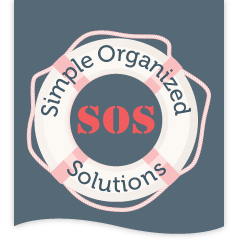 Sometimes making decisions is easy, other times not so much. We all make decisions all the time, every day throughout the day. We don’t think twice about many of them since they are part of our daily routines.
Sometimes making decisions is easy, other times not so much. We all make decisions all the time, every day throughout the day. We don’t think twice about many of them since they are part of our daily routines.
We usually make these types of decisions quickly because they are not complex and may be repetitious. The brains working memory only holds about 7 items. More than that is processed into long-term memory which requires conscious effort. There are always choices or options to consider in order to make decisions.
A decision ‘is the act or process of deciding’ according to Merriam Webster Dictionary. The definition goes on to explain that ‘a determination made after consideration’ is actually the conclusion or the decision.
Steve Jobs always wore the same thing every day – jeans & black turtleneck. The idea behind this concept is that 1 less decision to make freed up his mind for more important decisions.
As we age, it becomes more difficult to decide on more complex issues that we may or may not have faced in the past. We get into a ‘comfort zone’ of our living environment and tend to stay in the current situation no matter how it makes us feel. The thought of making a move to change our situation stresses us out so we choose to do nothing.
There are many reasons why we may have difficulties making decisions. Here are some of the reasons and potential solutions to get past indecision to make the decision that is right for you.
State of mind:
Tired, ambivalent, grieving, lack of interest, fear
Solution:
If possible, try not to make decisions when you’re feeling any of these emotions. You need a clear head to make an informed decision to avoid a mistake that may not be reversible. Sometimes when you sleep on it, the decision comes to you.
Type of decision:
Decisions that have higher stakes can create anxiety. Difficult or complex decisions require more consideration.
Solution:
In my experience, most people when faced with a difficult decision, reduce or eliminate their anxiety once they determine a plan of action. It’s not the decision itself, but the uncertainty of the outcome that causes the anxiety, or fear of the unknown.
Too many options/choices:
Information overload can lead to information paralysis. When this state occurs, it takes longer to make decisions and could lead to anxiety.
Solution:
Perform due diligence and search for options but don’t overdue it. Keep the list of options at a reasonable amount. Perhaps your list can start with recommendations from family and friends. If you have what you believe to be enough options, you may not need to do more research.
List the pros and cons of each option once you’ve narrowed down the list. If you’re stuck on 2 options, set a timer for a short amount of time, and just choose, go with your gut.
Consequence:
Most decisions are not written in stone and can be changed if it doesn’t work to your satisfaction.
Solution:
Part of your decision could be to create a plan B, or contingency. Think about your decision and what you would do if it doesn’t work out as expected. Could you reverse your decision and what would that entail? Is there another option on your list of pros and cons that could work as a contingency?
If none of these ideas appeal to you, I encourage you to think about what advice you would give to a friend faced with the same situation.
What do you do when faced with a difficult decision?


